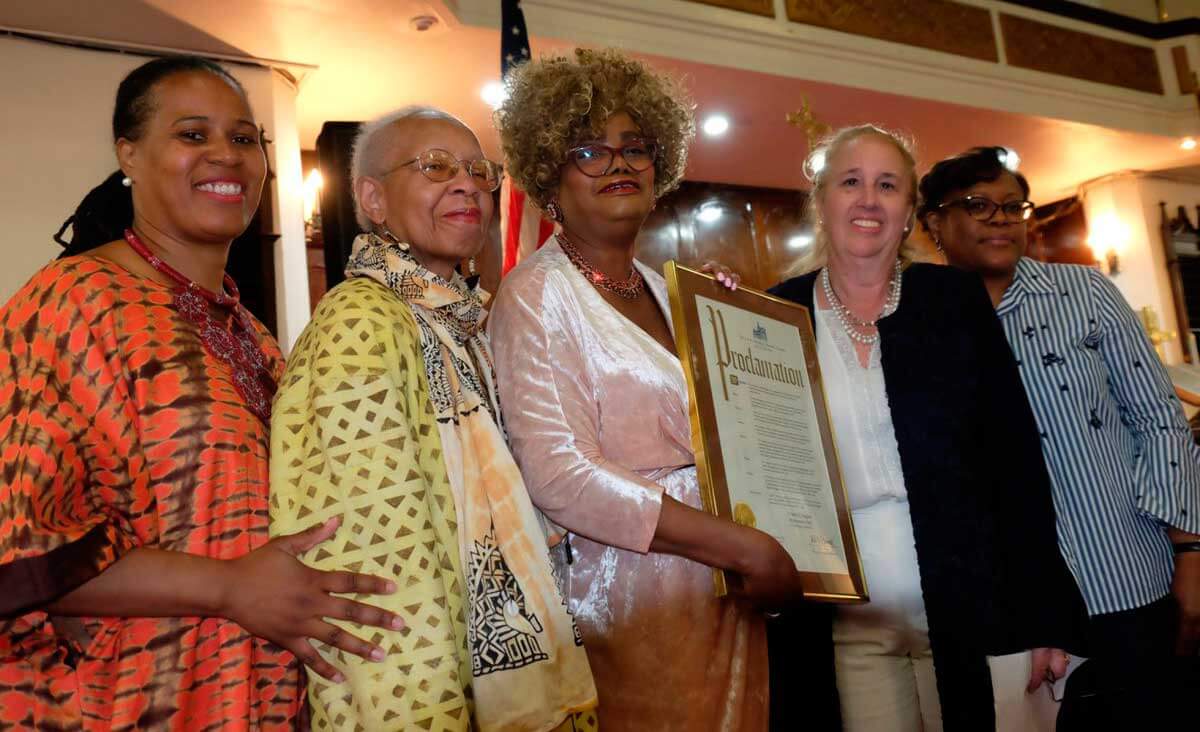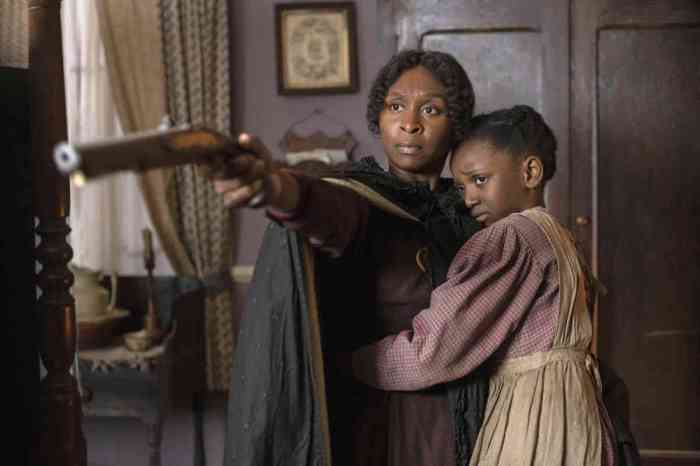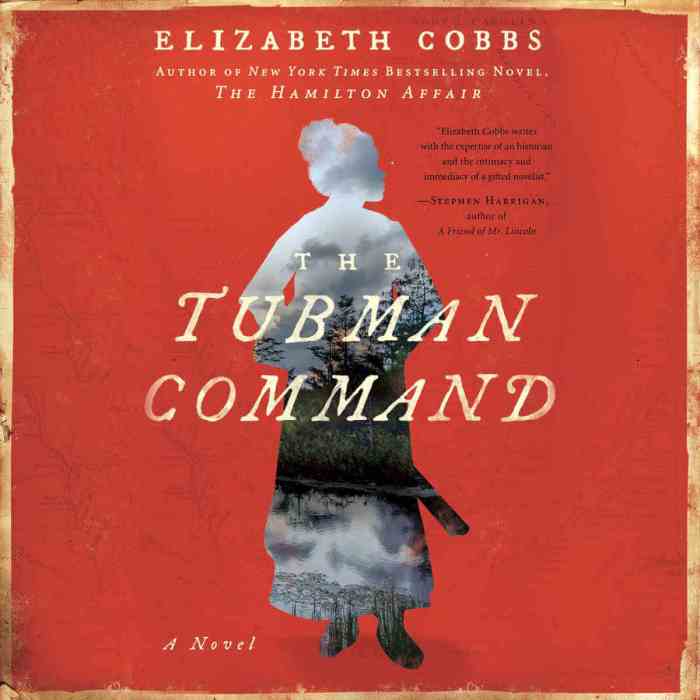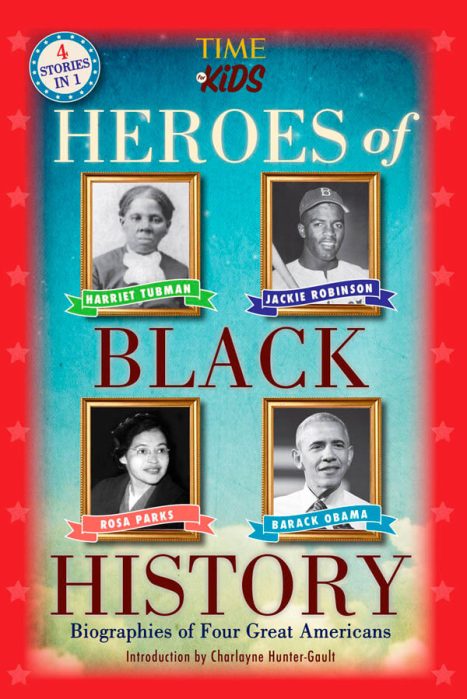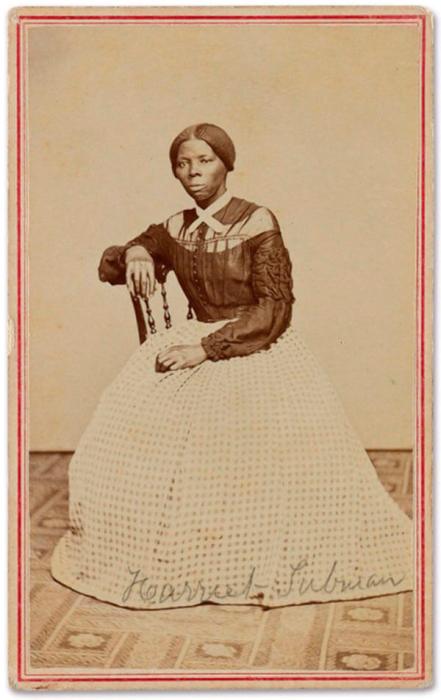He was a statesman, the ambassador to Haiti from July 1889 to 1891, an orator. He had been a slave in Maryland, and was a committed abolitionist. He authored several books. His words ring as true today as when he wrote them more than 160 years ago. Frederick Douglass escaped slavery in Maryland and dressed as a sailor landed in lower Manhattan in 1838, launching, as a free man, his life of activism.
She is a contemporary singer, an actress, writer, poet, charismatic performer and an independent scholar. This cultural “ambassador of good will” facilitates an educational program of African-American history and song that has grown into an initiative called Echoes of our Ancestors. Tami Tyree.
So, after Tami Tyree immersed herself in the life of Frederick Douglass, she knew that she wanted to honor him on the occasion of 200 years from his birth in 1818.
“I knew I couldn’t do it alone,” she said, and she reached out to Borough President Gale Brewer’s Harlem office.
With solidarity support buttressing her, in early May, Tyree in association with Dr. Joyce Duncan of the African Folk Heritage Circle presented a celebration in music, dance, recitation and sharing of history — The Frederick Douglass Continuum 200 / 2018.
This homage took place in Harlem’s Mother African Methodist Episcopal (A.M.E.) Zion Church, a church with its own deep legacy, a story of ecclesial, social and historical significance.
In 1796, a handful of black people, free and enslaved, walked out of (lower Manhattan’s) John Street Methodist Episcopal church to form a separate worship community — Mother A.M.E. Zion Church, the first African-American congregation in New York city and New York state. Relocating to Harlem in 1914, Sojourner Truth, Harriet Tubman, Paul Robeson as well as Frederick Douglass are among the Church’s long, illustrious membership roster.
A diverse audience attended the afternoon tribute well dosed with history as well as the arts.
Early in the program Lil Phillips of this church sang a moving rendition of “Go Down Moses.”
Dr. Duncan and Tami Tyree shared little known facts about Douglass. He was an entrepreneur, a journalist with his own printing press, owner of numerous properties, and a professional orator for the American Anti-Slavery Society. He was an ad hoc educator who famously said, “It is better to build strong children than to repair broken men.”
Also on the program, Rev. Dr. James Forbes, Jr., Pastor Emeritus of The Riverside Church, minced no words as he sermonized. “The President of the United States said that Africa and Haiti were ‘s-hole’ nations” and he delved into the meaning of those words…ingesting and excreting, actions the U.S., is well known to do with its own people as he listed women, the Irish, Italians, Jews, those in the criminal justice system and the poor.
He concluded that he would never call people trash and if someone called him the ‘S-word’, he would respond, “You’re right, for the wrong reasons because s-h-i-t stands for ‘sacred humanity in transformation.’”
Additionally, a program of performing artists including The New York African Chorus, Rudi Mwongozi (piano), Henrique Prince (violin), drummers Atiba Kwabena and Owusu Slater and Tami Tyree (vocals) were part of the celebrated homage to this important man in American history.




